New Scientist covers the latest developments in science and technology that will impact your world. New Scientist employs and commissions the best writers in their fields from all over the world. Our editorial team provide cutting-edge news, award-winning features and reports, written in concise and clear language that puts discoveries and advances in the context of everyday life today and in the future.
Elsewhere on New Scientist
A note from the magazine editor
Digging deeper • The way ancient artefacts are discovered tells its own story – if we want to hear it
New Scientist
Cosmic whirlpool captured by JWST
‘Demon’ dreamed up by physics actually exists in our cells
Kākāpō genomes sequenced to help save them
India’s historic moon mission • The success of Chandrayaan-3 has made India the first nation to land a craft near the moon’s ice-rich south pole, reports Matthew Sparkes
Women and men throw spears equally well using ancient atlatl tool
Sled dogs turn Svalbard greener with their faeces
Analysis Infectious disease • When will we see widespread vaccination against dengue? The way the four subtypes of dengue virus vary in their prevalence means making a vaccine against it is particularly challenging, says Jason Arunn Murugesu
AI can spot early signs of a tsunami from atmospheric shock waves
Cougars are shifting their hunting tactics to outsmart bears
Your height may affect your gut • The diversity of bacteria in your gut microbiome may be related to how tall you are
Plastic bottles can be recycled into supercapacitors
How genes affect education • Studies have overestimated the impact of the environment on how long people stay in education. Our genes are more influential to it than we thought, discovers Clare Wilson
Toughest known structure discovered by robot laboratory
The tropics could get so hot that all leaves on rainforest trees die
The human Y chromosome has been fully sequenced for the first time
Bees may be able to tell if water contains sugar just by looking
The rise of AI prompt engineers • Firms are hiring specialists to help them get more out of artificial intelligence, but the long-term need for such skills is debatable, finds Matthew Sparkes
Emperor penguin colonies lost all chicks due to ice breakup
Map of every molecule could be possible with AI
ChatGPT gets better marks than students
Turtles can act as radioactivity records
Tiny jets may power winds that stream from the sun
Really brief
Move over, Euclid • The history of mathematics is more diverse than you think. Credit shouldn’t only go to the ancient Greeks and Renaissance Europeans, says Kate Kitagawa
This changes everything • Covid calling Our priorities are all wrong when it comes to new technologies. We can’t get life-saving drugs, but we can get dubious self-driving taxis, says Annalee Newitz
Finite resource
Life at the crater’s edge • From a taste like sour milk to noises like a wailing child, a volcanologist reveals what it is like to get up close with his subject, finds James Dinneen
Hot on the trail of ET • Alien first contact is most likely to involve space junk or a probe, and only then because we have sought it out, learns Simon Ings
New Scientist recommends
The TV column • Déjà viewing At the heart of Painkiller, a new Netflix miniseries, is the highly addictive pain drug OxyContin. What can the show possibly add to a great series that told the same story less than two years ago, asks Bethan Ackerley
Your letters
Relax to the max • We are finally getting a grasp of what rest and relaxation actually do to the brain and body. The insights could help us all...

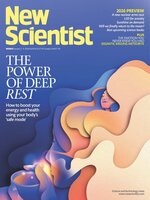 Jan 03 2026
Jan 03 2026
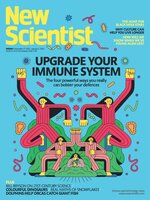 Dec 27 2025
Dec 27 2025
 13-26 December 2025
13-26 December 2025
 Dec 06 2025
Dec 06 2025
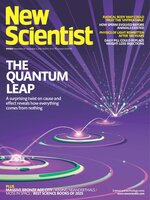 Nov 29 2025
Nov 29 2025
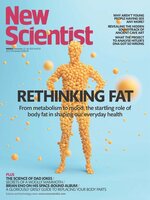 Nov 22 2025
Nov 22 2025
 Nov 15 2025
Nov 15 2025
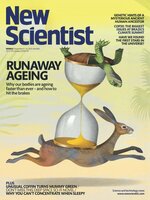 Nov 08 2025
Nov 08 2025
 Nov 01 2025
Nov 01 2025
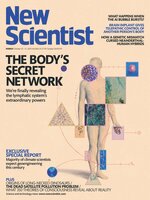 Oct 25 2025
Oct 25 2025
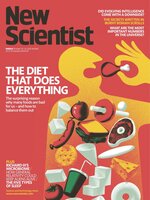 Oct 18 2025
Oct 18 2025
 Oct 11 2025
Oct 11 2025
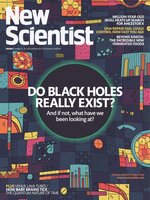 Oct 04 2025
Oct 04 2025
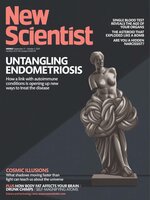 Sep 27 2025
Sep 27 2025
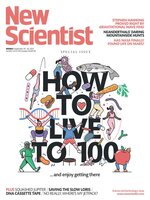 Sep 20 2025
Sep 20 2025
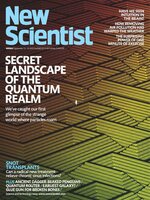 Sep 13 2025
Sep 13 2025
 Sep 06 2025
Sep 06 2025
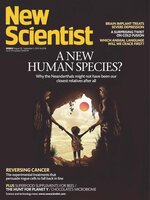 Aug 30 2025
Aug 30 2025
 Aug 23 2025
Aug 23 2025
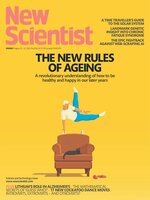 Aug 16 2025
Aug 16 2025
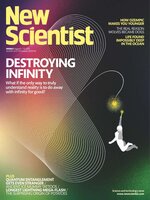 Aug 09 2025
Aug 09 2025
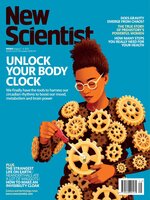 Aug 02 2025
Aug 02 2025
 Jul 26 2025
Jul 26 2025
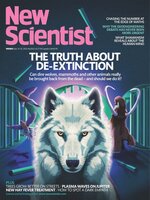 Jul 19 2025
Jul 19 2025